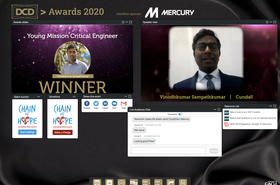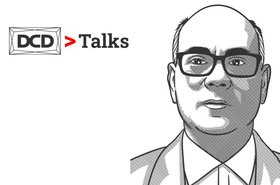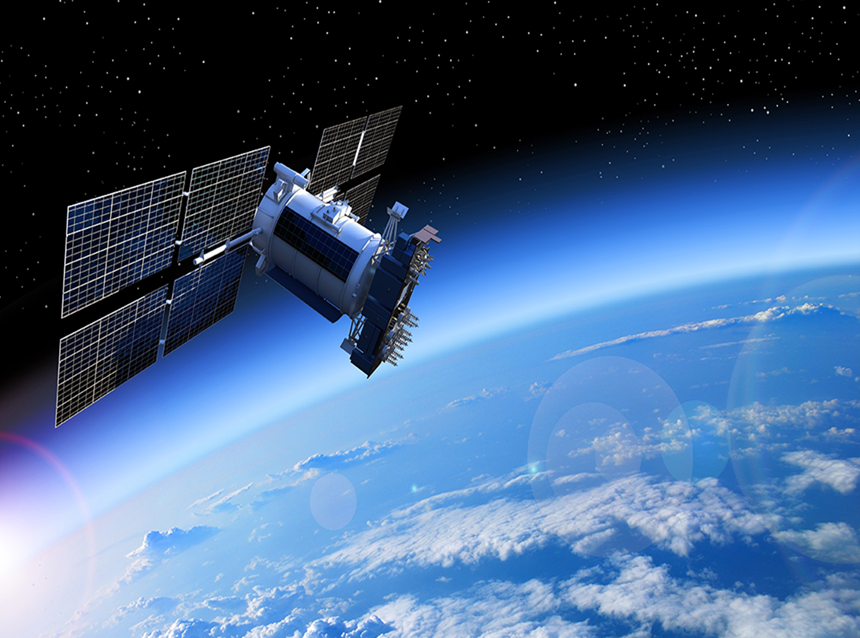When I first heard the term ‘Mission Control’ it was back in the early 1960’s as a young person captivated by the NASA/Apollo Space Program. The space program truly inspired me and is one of the reasons why I decided to go into the fields of engineering, technology, education, and research.
During that time there was nothing even close from a technological standpoint that could compete with the scale and magnitude of the science/technology advances and discoveries for that era. So much was accomplished and parlayed into today’s critical systems and infrastructures.
Fast forward to present day and we again are in one of the most defining moments in human history, greater than 60 percent of the world’s population is digitally connected generating information and 10’s of billion IoT devices collecting data and pushing its information as well from Device-to-Server-to-Database-to-AI Engines, creating intelligence that monitors and controls everything digital.
We are literally moving these electrons all around the earth and universe through the data center or commuting facility that is providing a 24/7 ‘always on’ environment executing our every command. These data centers and other critical infrastructures have become the new mission control for our digital society.
The infrastructure to support our ‘compute’ environment is more complex and challenging than ever. This requires a diverse set of technical, communication, people management skills, technology and software solutions to maintain a reliable, available, resilient, and safe global environment constantly monitored and visualized through the use of redundant systems, fail-safe designs, and rigorous testing and validation with analytics/intelligence producing KPI’s that tell us where we need to improve.
That being said, this industry covers every profession from all disciplines of architecture/engineering, computer science, construction, financial, to name a few, not to mention the importance of all the skilled trades that make it all work 24/7. There literally is something for everyone in this industry that touches all verticals and business.
Taking this thought a step further, in an ‘always on’ world without the skilled professionals and technicians to operate the systems that keep everything and anything humming 24/7, we cease to exist and are back in the stone age overnight.
In fact, half of the wisdom will be lost by the end of this decade and there is not an executable plan to do a proper and coordinated knowledge transfer and capture what our next generation of mission critical professionals need to succeed along with the digital infrastructure that supports its availability.
If you compare the importance of the work today’s mission critical engineers do, it’s quite amazing that the mission critical profession really is the new mission control for the life we live today.
I believe we are at a critical inflection point now with the rapid pace our mission critical industry is continuing to grow. It’s imperative we have a proper career progression, education, training, certification, and ongoing recertification program so we can manage effectively and maintain today’s mission critical infrastructure to sustain our way of life and global safety.
Furthermore, we need to attract and expose budding young minds to become mission critical engineers as early as grade school so that they know the industry even exists so they will be eager and excited to be involved with design, management, and operation of critical environments.
That excitement can come from internship programs; however, it’s important that job responsibilities are clearly defined so milestones and progress can be measured, and knowledge gaps can be strengthened. It is beginning to be improved with organizations setting up outreach programs to the kids. These organizations include: 7/24 Exchange, Association of Facilities Engineers, IFMA, BOMA, Infrastructure Masons and many others.
Today we need to have a sense of urgency with regards to professionals and technicians who operate and maintain our critical systems and identify the programs and tools that are available.
As one example, think about all the training astronauts, pilots, ship captains, first responders receive before they are permitted to touch a vessel or provide healthcare and how much mature technology they have available to them, both while they are learning and while progressing in their careers.
The cost of training a first responder can be over $100,000 dollars and continued annual investment of greater than 15 percent of the initial amount per year to maintain their skill set. As an industry we are spending billions to build critical infrastructures and now we need the tools, technology, techniques and skilled personnel to operate, manage these multibillion-dollar infrastructures and smaller for the full lifecycle of the investment with a reliability and availability as high as 99.999 percent.
I have dedicated a significant part of my career to developing mission critical training material for young engineers entering this field, offering educational programs and seminars, and have also been affiliated with and developing programs for New York Institute of Technology, Marist College, NYU, Data Center Dynamics, Association of Facilities Engineers, Mission Critical Magazine, International Building Engineers Union, IEEE and many others.
The goal is to create the best in breed mission critical education and training program for the industry and provide resources as well as a structured career progression model for the mission critical industry. There are other programs and whitepapers available from companies and organizations such as ASHRAE, IEEE, Vertiv, Mitsubishi, Schneider Electric, Eaton, and Eaton/Powerware to name a few that offer a wealth of knowledge about the industry.
With the ‘Tik-Tok’ Generation becoming a builder/user/operator, there is a sense of urgency to prepare the new professionals with a seamless transition to taking control of our new Mission Control. The challenge is how do we, as an industry inspire this generation to become mission critical engineers just as NASA and the Apollo Space Program inspired the engineers of my era?
More from PMC Group I
-

-

DCD>Awards 2020: Winners announced
Congratulations to those that went above and beyond, in the strangest year
-

DCD>Talks Mission Critical with Peter Curtis
George Rockett, CEO is joined by Peter Curtis, CEO, PMC Group I to talk about mission Critical operations.


